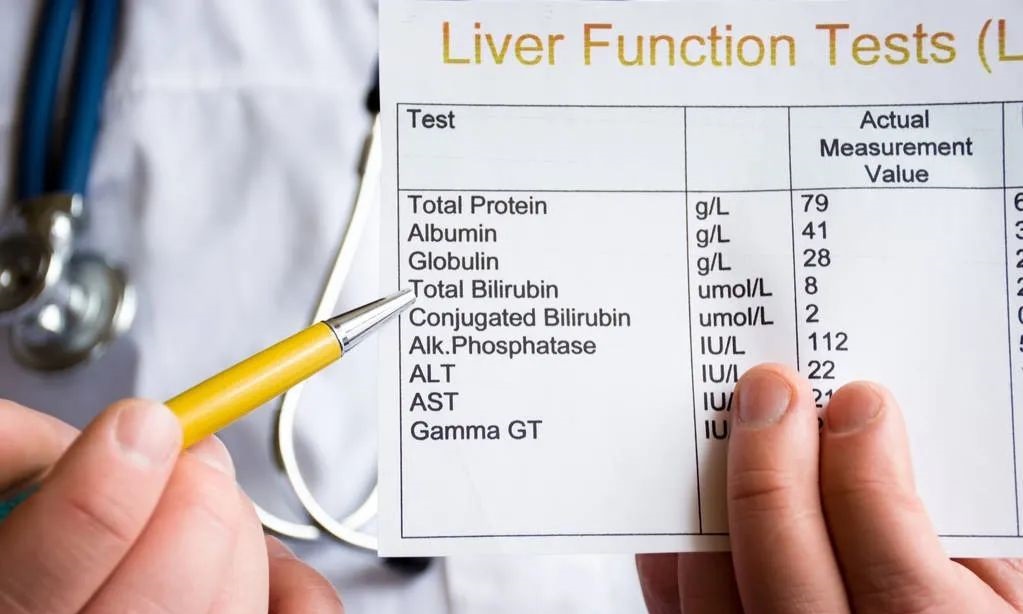What are the indicators of liver function transaminase?
- Aspirin: Study Finds Greater Benefits for These Colorectal Cancer Patients
- Cancer Can Occur Without Genetic Mutations?
- Statins Lower Blood Lipids: How Long is a Course?
- Warning: Smartwatch Blood Sugar Measurement Deemed Dangerous
- Mifepristone: A Safe and Effective Abortion Option Amidst Controversy
- Asbestos Detected in Buildings Damaged in Ukraine: Analyzed by Japanese Company
What are the indicators of liver function transaminase?
What are the indicators of liver function transaminase? Specifically teach you how to look!
- AST (aspartate aminotransferase) is found in the liver and other organs, including the heart muscle, skeletal muscle, kidney, and brain.
- ALT (Alanine aminotransferase) is mainly found in the liver, so it is a more specific marker of liver cell damage. The level of ALT is correlated with the degree of abdominal obesity.
- AST (aspartate aminotransferase) is found in the liver and other organs, including the heart muscle, skeletal muscle, kidney, and brain. Children’s AST levels decrease with age, and become more significant in girls after the age of 11.
- Serum alkaline phosphatase is mainly derived from the liver and bones. Elevated alkaline phosphatase can be subdivided to determine whether it comes from the liver or bones. The liver origin is generally confirmed by the increase of other indicators (eg, GGT) accompanied by cholestasis. The alkaline phosphatase level also changes with age. Because physiological osteoblasts are active, alkaline phosphatase levels are usually higher in children and adolescents. Its level may be as high as three times that of healthy adults, with the highest levels occurring in infancy and adolescence, corresponding to the period of fastest bone growth.
- GGT is found in hepatocytes and bile duct epithelial cells, as well as in the kidneys, seminal vesicles, pancreas, spleen, heart, and brain. In normal full-term newborns, serum GGT activity is 6-7 times the upper limit of the normal reference range for adults, and drops to a low level at 5-7 months of age

1. What does the slight increase in alanine aminotransferase indicate?
Alanine aminotransferase is a very sensitive enzyme in the human body. Under normal circumstances, its concentration is 0-40 U/L. Once the concentration exceeds 40 U/L, it indicates that liver function has been damaged. In general, the higher the concentration of transaminase, the more severe the liver damage.
But this is not to say that as long as the transaminase is elevated, there will be problems with the liver. Sometimes, especially before the blood test, if you take cold medicine, exercise vigorously, have a fever, drink alcohol, or are over-fatigued, the results may be biased. Therefore, if the concentration of alanine aminotransferase is found to be abnormally high during the physical examination, do not worry, rest for a month, and then go for another check-up. If the check result is still abnormal, then most of it is suffering from liver disease.
2. What are the reasons for the mild to moderate increase in alanine aminotransferase?
●Use of drugs
●Chronic viral hepatitis (hepatitis B, hepatitis C and hepatitis D)
●Alcoholic Liver Disease
●Hemochromatosis
●Non-alcoholic fatty liver disease
●Autoimmune hepatitis
●Hepatolenticular degeneration
●α-1 antitrypsin deficiency
●Congestive liver disease
●Adult bile duct deficiency
●Malignant tumor infiltration (most often breast cancer, small cell lung cancer, lymphoma, melanoma or myeloma)
●Muscle disease (eg, subclinical hereditary muscle metabolic disease)
●Thyroid disease
●Celiac disease
●Adrenal insufficiency
●Anorexia nervosa
●Giant AST [AST-immunoglobulin (usually IgG) complex causes a moderate increase in plasma AST levels] [28]
3. What should I do if the transaminase is elevated?
Elevated transaminase means abnormal liver function, which sounds terrible, but at this time, the patient’s condition is generally not serious.
There are many reasons for the elevation of transaminase. Under the guidance of a specialist, a corresponding specialist examination must be performed to determine the cause, and then actively remove the cause and cooperate with the treatment. Patients should pay attention to follow the doctor’s advice, adjust their diet, do not eat spicy and greasy food, do not smoke, do not drink alcohol, exercise more, work scientifically, ensure adequate sleep, and they will slowly recover their health.
In addition, the psychological impact on the physiology is very profound, so patients must adjust their mood, maintain a positive and optimistic attitude towards life, do not be overly sad, do not be negative, and control anger. This two-pronged approach will quickly restore health. .
(source:internet, reference only)
Disclaimer of medicaltrend.org



